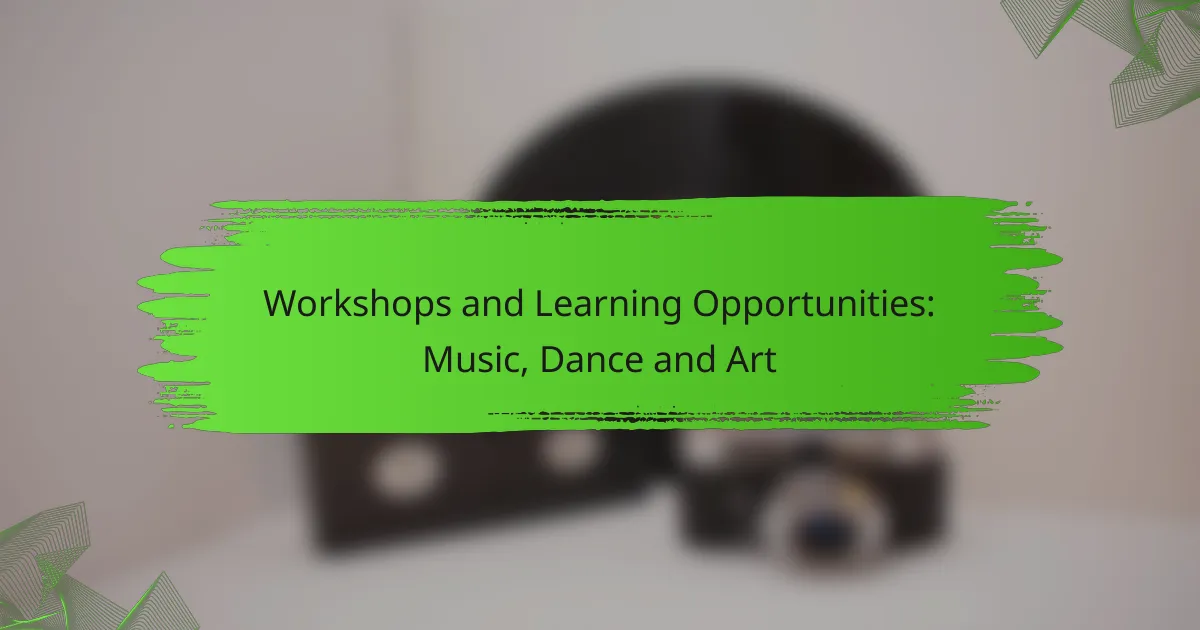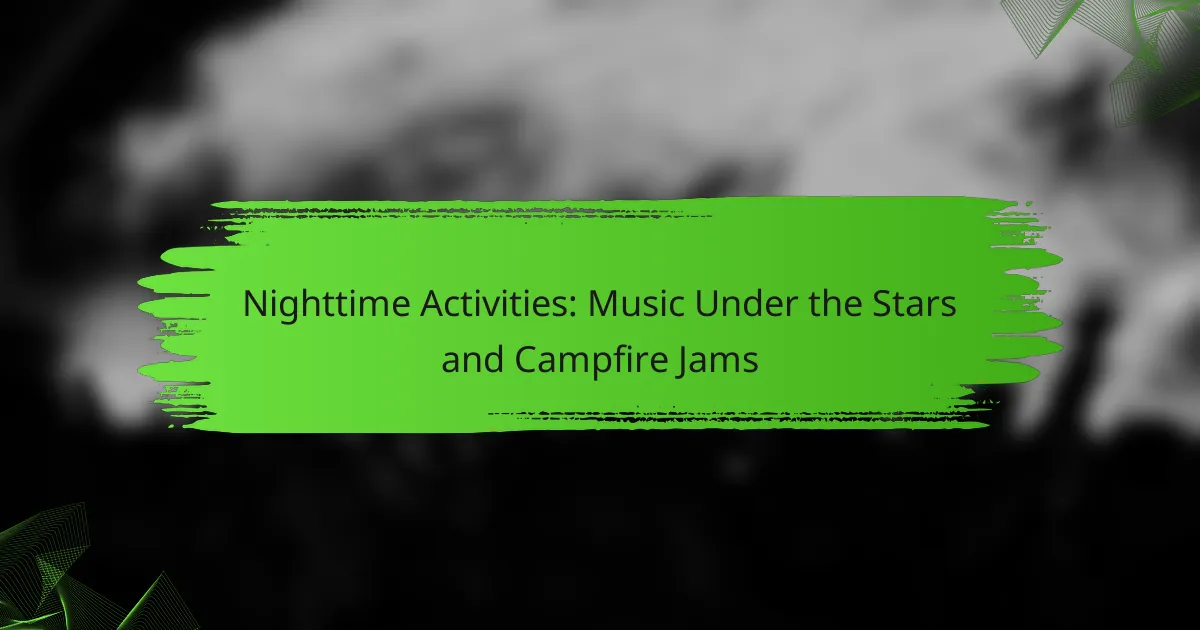New York City boasts a dynamic selection of workshops in music, dance, and art, suitable for all skill levels. Esteemed institutions such as Juilliard, Alvin Ailey, and the Art Students League offer exceptional learning opportunities for both budding and seasoned artists. Engaging in these workshops not only enhances your skills but also connects you with a community of creative individuals, fostering both artistic and personal growth.
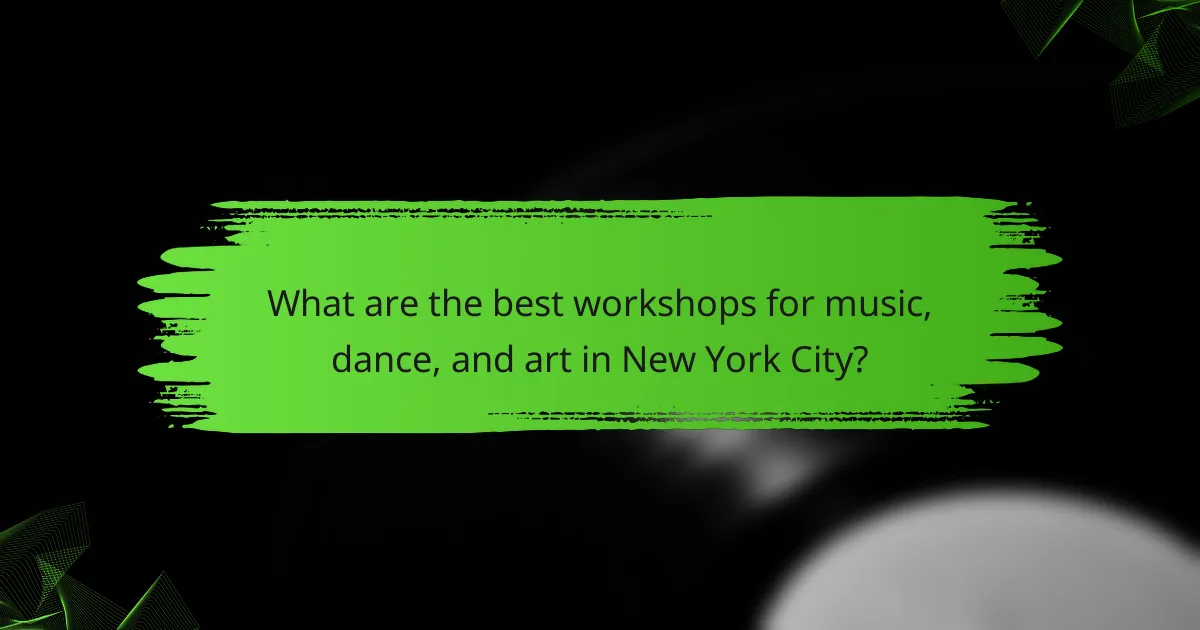
What are the best workshops for music, dance, and art in New York City?
New York City offers a vibrant array of workshops for music, dance, and art, catering to various skill levels and interests. Notable institutions like Juilliard, Alvin Ailey, and the Art Students League provide exceptional opportunities for both aspiring and experienced artists.
Juilliard School music workshops
Juilliard School’s music workshops are renowned for their rigorous training and expert instruction. These workshops typically cover a range of instruments and vocal techniques, allowing participants to refine their skills in a supportive environment.
Workshops often include masterclasses with distinguished faculty and guest artists, providing invaluable insights into performance and artistry. Tuition varies, but expect costs in the low hundreds of USD for short-term workshops, with longer programs priced higher.
Alvin Ailey American Dance Theater classes
Alvin Ailey American Dance Theater offers a variety of dance classes suitable for all levels, from beginners to advanced dancers. Classes focus on techniques such as modern, ballet, and African dance, emphasizing both skill development and artistic expression.
Participants can choose from drop-in classes or more structured sessions, with prices typically ranging from $20 to $30 per class. It’s advisable to register in advance, especially for popular classes, to secure a spot.
Art Students League of New York courses
The Art Students League of New York provides a diverse selection of art courses, including painting, drawing, sculpture, and printmaking. These courses are designed for artists at all levels, fostering creativity and technical skills.
Tuition is generally affordable, with many classes costing around $300 for a full term. The League also offers flexible scheduling, allowing students to choose from day, evening, or weekend classes to fit their busy lives.

How to choose the right workshop for your interests?
Selecting the right workshop involves understanding your personal interests and aligning them with the available options. Consider what skills you want to develop and how those skills fit into your artistic goals.
Assess your skill level
Before choosing a workshop, evaluate your current skill level in music, dance, or art. Beginners may benefit from introductory classes that focus on foundational techniques, while more advanced participants might seek specialized workshops to refine their skills.
For example, if you have some experience in painting, look for workshops that offer intermediate techniques rather than starting from scratch. Many workshops categorize their offerings as beginner, intermediate, or advanced, making it easier to find the right fit.
Consider workshop duration and format
Workshops can vary significantly in duration and format, ranging from a few hours to several weeks. Shorter workshops may provide a quick overview or a specific skill, while longer sessions often allow for deeper exploration and practice.
Think about your schedule and how much time you can commit. If you are busy, a one-day workshop might be more suitable, whereas a multi-week course could be ideal for those looking to immerse themselves in a subject. Additionally, consider whether you prefer in-person workshops for hands-on experience or online formats for flexibility.

What are the benefits of participating in creative workshops?
Participating in creative workshops offers numerous advantages, including the opportunity to develop new skills, connect with like-minded individuals, and foster personal growth. These workshops provide a structured environment where creativity can flourish, leading to both artistic and personal benefits.
Skill enhancement
Creative workshops are designed to help participants improve their skills in specific areas such as music, dance, or art. Through hands-on instruction and practice, attendees can learn techniques and gain insights that may not be available through self-study. For example, a painting workshop may cover color theory and brush techniques, allowing participants to refine their artistic abilities.
Moreover, workshops often cater to various skill levels, from beginners to advanced practitioners. This inclusivity enables individuals to progress at their own pace while receiving tailored feedback from instructors.
Networking opportunities
Engaging in creative workshops allows participants to meet others who share similar interests, fostering a sense of community. Networking in these environments can lead to collaborations, friendships, and professional connections that may enhance one’s artistic journey. For instance, a dance workshop might connect aspiring dancers with choreographers or fellow performers.
Additionally, these workshops often attract diverse participants, providing a rich tapestry of perspectives and experiences. This diversity can inspire new ideas and approaches to creativity, broadening one’s artistic horizons.
Personal growth and expression
Creative workshops encourage personal growth by providing a safe space for self-expression. Participants can explore their emotions and thoughts through various artistic mediums, which can lead to increased self-awareness and confidence. For example, a music workshop may help individuals express their feelings through songwriting or performance.
Furthermore, the act of creating art can be therapeutic, offering a constructive outlet for stress and anxiety. Engaging in creative activities has been shown to improve mental well-being, making workshops a valuable resource for personal development.

What are the costs associated with workshops in Los Angeles?
The costs for workshops in Los Angeles can vary widely based on the type of workshop, duration, and instructor experience. Generally, participants can expect to pay anywhere from $20 to several hundred dollars per session, depending on these factors.
Average fees for music workshops
Music workshop fees in Los Angeles typically range from $30 to $150 per session. Group workshops are often more affordable, while private lessons can be on the higher end of the scale. Consider the instructor’s credentials and the workshop’s length when evaluating costs.
Some workshops may offer package deals or discounts for multiple sessions, which can help reduce the overall expense. Always check for any additional materials or fees that may not be included in the initial price.
Typical costs for dance classes
Dance classes in Los Angeles usually charge between $15 and $30 per class for group sessions. Private lessons can range from $50 to $200, depending on the instructor’s experience and the class duration. Many studios offer introductory rates or trial classes at a lower cost.
When budgeting for dance classes, consider the frequency of classes you plan to attend, as many studios provide discounts for bulk purchases or monthly memberships. Be mindful of any registration fees that may apply.
Art workshop pricing structures
Art workshop pricing in Los Angeles can vary significantly, with fees typically falling between $25 and $100 per session. Factors influencing the cost include the type of art being taught, the materials provided, and the instructor’s expertise. Some workshops may require participants to bring their own supplies, which can affect overall costs.
Look for workshops that offer tiered pricing based on skill level or duration. Many art studios also provide discounts for early registration or group bookings, making it more affordable to explore your creative side.
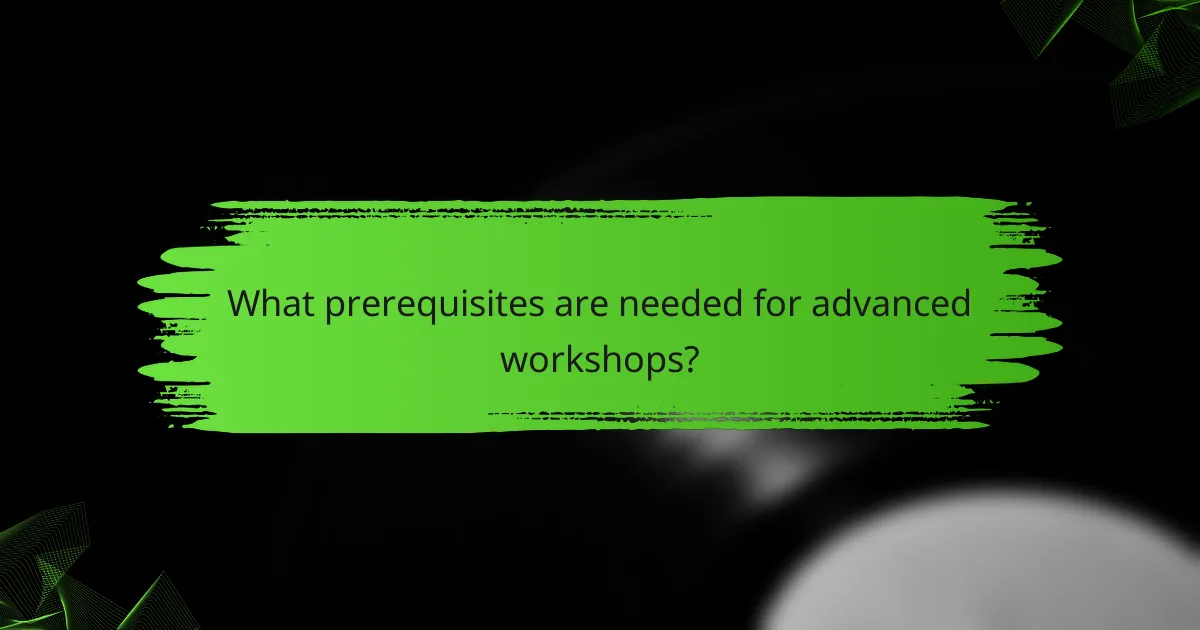
What prerequisites are needed for advanced workshops?
Advanced workshops in music, dance, and art typically require prior experience and specific materials. Participants should be prepared to demonstrate foundational skills and bring necessary tools to fully engage in the learning process.
Previous experience requirements
Most advanced workshops expect participants to have a solid background in their chosen discipline. For instance, in music, this might mean proficiency in playing an instrument or understanding music theory. In dance, prior training in specific styles or techniques is often essential.
It’s advisable to check the workshop description for specific prerequisites. Some may require a certain number of hours in beginner or intermediate classes, while others might ask for a portfolio or audition to assess skill levels.
Materials or tools needed
Participants should come equipped with the necessary materials or tools relevant to their workshop. For example, artists may need specific paints, brushes, or canvases, while musicians should bring their instruments and sheet music.
Before attending, review the workshop guidelines to ensure you have everything required. This preparation can include checking for any recommended brands or types of materials that will enhance your learning experience.
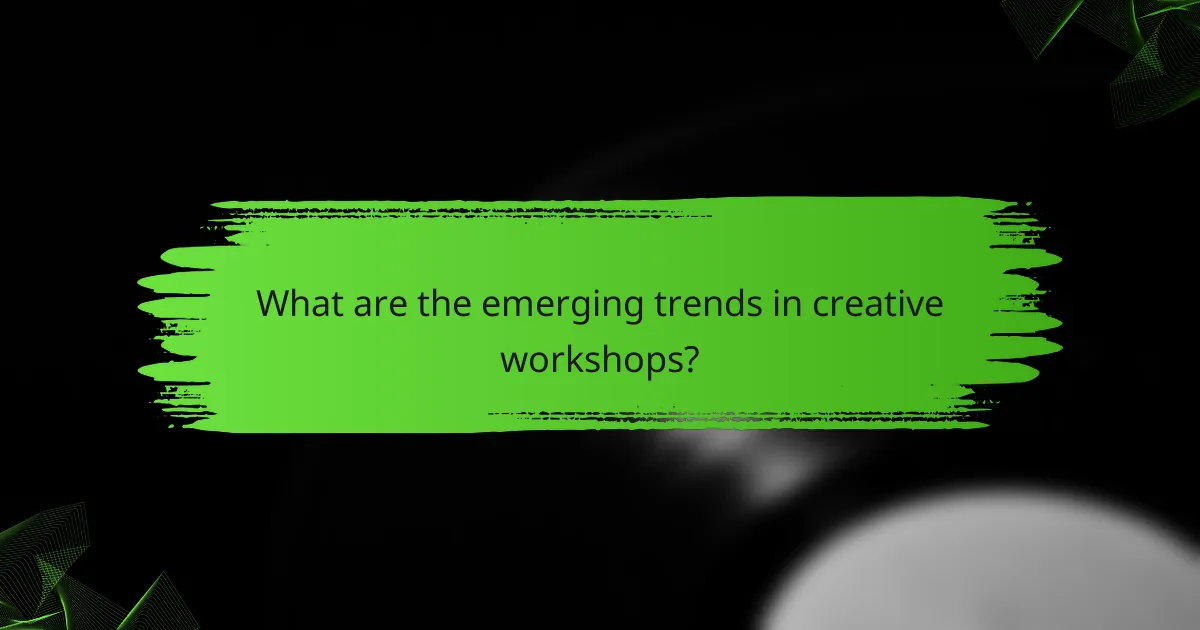
What are the emerging trends in creative workshops?
Emerging trends in creative workshops focus on accessibility, technology integration, and mental health benefits. These trends reflect a shift towards more inclusive and innovative approaches to learning in music, dance, and art.
Virtual workshops and online learning
Virtual workshops have gained significant traction, allowing participants to engage from anywhere with an internet connection. This format often includes live sessions, recorded content, and interactive elements, making it flexible for various schedules.
Platforms like Zoom and dedicated art education websites offer a range of classes, from beginner to advanced levels. Participants can expect to pay anywhere from $10 to $100 per session, depending on the instructor’s expertise and the workshop’s length.
Integration of technology in art
Technology is increasingly becoming a vital component of creative workshops, with tools like digital painting software and music production apps enhancing traditional methods. Artists and educators are using these technologies to expand creative possibilities and streamline the learning process.
For example, workshops may incorporate virtual reality to create immersive experiences or use apps for collaborative projects. This integration not only attracts tech-savvy participants but also prepares artists for modern industry demands.
Focus on mental health and wellness through creativity
Many workshops now emphasize the therapeutic aspects of creativity, recognizing its potential to improve mental health and overall well-being. Activities in music, dance, and art can serve as effective outlets for stress relief and self-expression.
Instructors often incorporate mindfulness techniques and encourage participants to explore their emotions through creative processes. This approach can lead to increased satisfaction and personal growth, making workshops not just about skill development but also about enhancing life quality.
